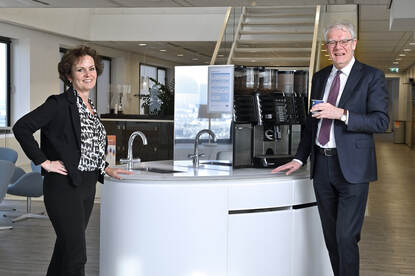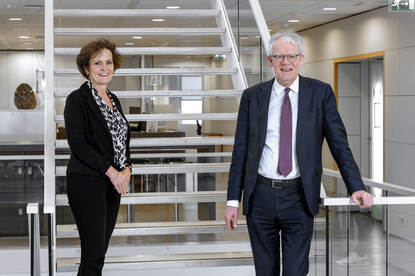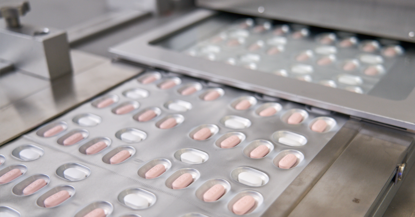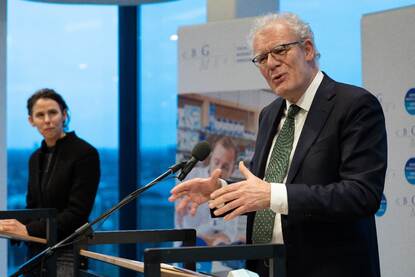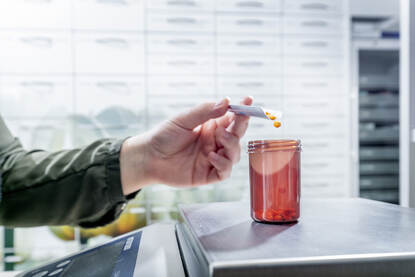In order to be allowed to market medicinal products for human use, a pharmaceutical company requires a marketing authorisation. For a medicinal product there are two types of marketing authorisations that can be applied for: a national marketing authorisation and a European marketing authorisation.
There are three different procedures for obtaining a marketing authorisation:
- via a national procedure
- via a decentralised procedure or mutual recognition procedure
- via a centralised procedure
A pharmaceutical company can choose which procedure it wishes to follow, unless it concerns a medicinal product that has to be authorised through the centralised procedure by virtue of European laws, such as products to treat cancer.
The national procedure
For the national procedure, a company must submit an authorisation dossier to the medicines authority of one member state. In the Netherlands, this is handled by the Medicines Evaluation Board (MEB). The MEB assesses the quality, efficacy and safety of the medicinal product. In the event of a positive assessment, the MEB issues a marketing authorisation which is only valid for the Netherlands. With this authorisation, the medicinal product may then only be marketed in the Netherlands.
The decentralised procedure
For the decentralised procedure, a company applies for marketing authorisation of a medicinal product in several member states within the European Union (EU) at the same time. This procedure is only possible if the medicinal product has not been granted a marketing authorisation in any European member state. The company asks one country to become a reference member state in the procedure, for example the Netherlands. This country is then the Reference Member State (RMS). The reference member state coordinates the assessment of the authorisation dossier. The other member states involved can provide their contribution to the assessment procedure.
The mutual recognition procedure
When a medicinal product already has a marketing authorisation via a national or decentralised procedure, the company can also extend the authorisation to other EU countries. This takes place via a mutual recognition procedure. The medicines authority that carried out the original assessment (the RMS) continues to coordinate this procedure.
In the case of the decentralised and mutual recognition procedure, a separate national phase follows after the approval of a medicinal product. In this phase, the company prepares the Dutch translations of the package leaflet and other documentation and, after the MEB has assessed the translations, it issues a marketing authorisation on a national level.
The centralised procedure
With the centralised procedure, the authorisation of the medicinal product is valid at once for the whole European Union (EU). It involves a pharmaceutical company submitting the authorisation dossier to the European Medicines Agency (EMA). The dossier is assessed by two member states: the member state which provides the rapporteur and the member state which provides the co-rapporteur. On behalf of their country, these rapporteurs and co-rapporteurs are members of the Committee for Medicinal Products for Human Use (CHMP), in which all member states are represented. After discussion of the reports drawn up by the rapporteurs and co-rapporteurs and once the company has answered any questions, the CHMP sends its assessment to the European Commission for the final decision.
The centralised procedure is obligatory for medicinal products that have been prepared using biotechnology and for new medicinal products that are intended to treat diseases such as cancer, AIDS, neurodegenerative diseases, diabetes and viral diseases (such as COVID-19). Medicinal products in connection with gene and cell therapy also fall under this obligation. The reason for this obligation is to give patients throughout Europe access to these medicinal products.
Rolling review
An accelerated procedure is used for the assessment of several coronavirus vaccines and medicines for the treatment of COVID-19. In what is called a rolling review, a company shares information with medicines authorities such as the MEB and the EMA while the clinical trial is still ongoing. This makes it possible to start the assessment earlier. Rolling reviews save a lot of time without compromising on the assessment of the quality, safety and efficacy of the vaccine or medicine. Although these procedures do place huge additional demands on Europe’s medicines authorities.
Parallel import
Another way to introduce a medicinal product to the market is via parallel import. In this case, a medicinal product is imported from another European member state by an importer. The parallel product must be the same or practically the same as the Dutch reference medicinal product. There may be no difference in efficacy and safety. The MEB assesses whether the parallel product is interchangeable with a medicinal product that has already been authorised in the Netherlands.
How the MEB assesses medicinal products
A pharmaceutical company may only introduce its medicinal product for human use to the market after approval by a medicines authority. In the Netherlands, it is the MEB that assesses the efficacy, safety and quality of medicinal products. An assessment takes place in accordance with a fixed procedure.
The assessment of a medicinal product or vaccine is not a one-off event. It is followed by an ongoing process over the period that the product is marketed. This phase is known as ‘pharmacovigilance’. In this period, the MEB works with the EMA, the medicines authorities in European Member States and the pharmaceutical company to monitor safety. In the Netherlands, Lareb carries out part of the task of pharmacovigilance for the MEB: the collection, registration and analysis of reports of possible adverse reactions from patients and care providers.
These reports alone are not enough in order to continuously weigh up the risks and benefits of a vaccine or medicine. The safety analyses that pharmaceutical companies are required to submit, studies, follow-up studies and scientific literature play an important role and are assessed by the MEB.

